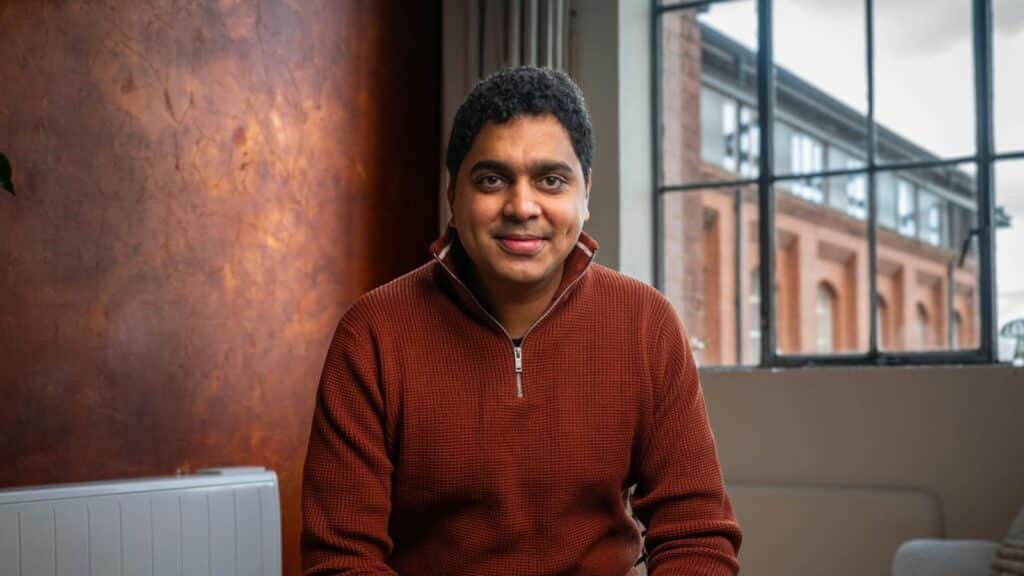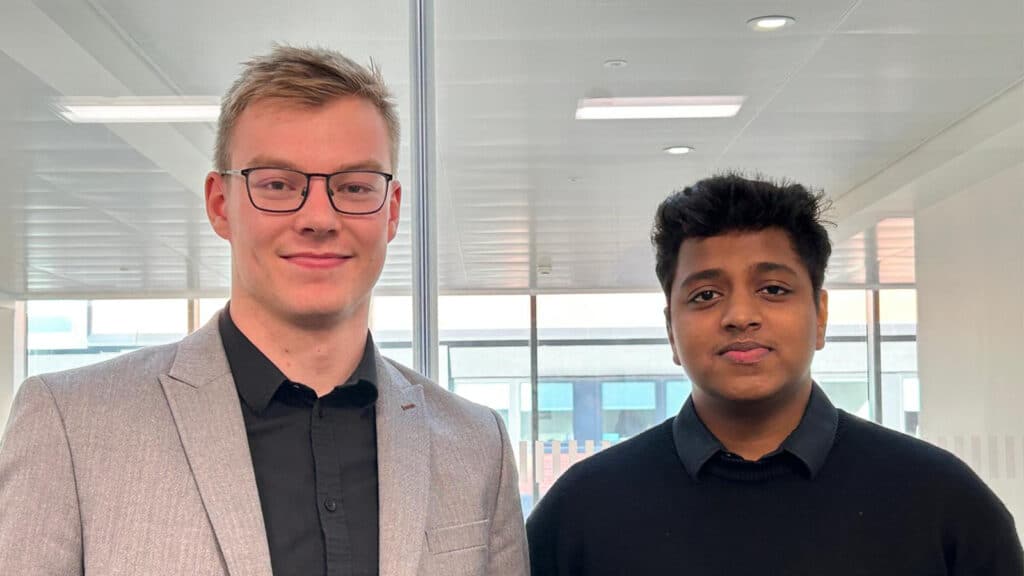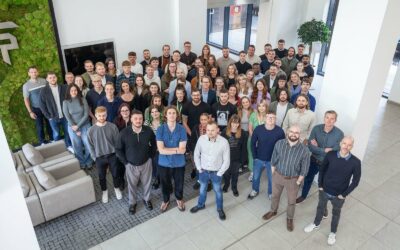World-class universities and scaling businesses in the North might be churning out tech talent, but are they sticking around? One CEO hails Manchester as the ‘new London’ thanks to the benefits of remote talent pools while a different founder has struggled to fill senior roles.
As part of Prolific North’s continuing GRAFT series digging into the future of Northern tech, we look at whether there’s a tech talent shortage brewing and uncover what business leaders need to secure the right people as their companies scale.
More than half (54.7%) of tech employees believe a skills gap is a key area for development, according to the recent Innovation Nation report released by Barclays Eagle Labs.
“We’re definitely seeing that top-tier AI engineers tend to be concentrated in the South, as the North’s AI start-up ecosystem is still in its early stages. However, that’s beginning to change with companies like Joggle and Fireflai building founding teams here,” Jonathan Moran, director of tech recruitment consultancy Better Placed, tells Prolific North.
Dr Elizabeth Young, investment manager at Par Equity, has started to see a shift after meeting a number of founders this year that have moved up to Manchester from the South to tap into talent specialised in software and AI.

“That’s what happens when you build a centre of excellence in a region, people are attracted to it because that’s where the talent is going to be. That’s what we’re trying to emulate with the National Children’s Health Accelerator in South Yorkshire – and hopefully other clusters.”
READ MORE: ‘Why I’m moving to Manchester to scale my AI business’
Over at Finity, formerly known as Codatech until a rebrand earlier this year, CEO Varun Monteiro paints a different picture when it comes to talent.
He joined Codatech in 2020 following a successful exit from Accentra Technologies. Since joining Finity, the bootstrapped business has expanded from a team of seven to 50 staff.
“The North is becoming a replacement for everything happening in London,” says Monteiro. “Manchester, in particular, is seeing major companies grow and scale and a lot of talent is also basing themselves there.”
With the rise in remote working, a policy the company now adopts, he believes start-ups now have the opportunity to scale up with global talent.
“We are not bothered about where a person is based. We were spending quite a lot of money on rent yet on average, there was one person going into the office a month. So we decided to downsize that office completely and use that money to invest within the business.”

The landscape is “changing very quickly” as more people move out of London for a better work/life balance.
“When talent moves somewhere else, businesses will start setting up there to attract local talent, because maybe they want a hybrid working environment policy rather than a fully remote one so you’ll see more businesses growing here. When there are a few businesses that are doing really well, that’s when private equity and venture capital money will start flowing into that space too.”
READ MORE: Inside the Northern tech scene and the investors betting big outside London
Emma Cassidy, investment manager at DSW Ventures, agrees: “Historically there were mass migrations of students graduating from Northern universities down to London.
“In the last few years, these have become really great cities to actually live, stay and build a career in so talent pools are now staying here for the long-term.”
But it’s not a universal view. For Harry Panter, co-founder of student living platform Housr, it has previously been “really tough” for his business to find top-level senior staff or c-suite talent.
“We have found some awesome people but it took a while. You go down to London or the US and it’s hot. It’s hard to pick between people. In Manchester, it feels like there is no pipeline, you might have to pay for relocation because the talent does get driven down.”
If more Northern businesses had the mentality of building “billion dollar companies”, he believes it would attract more investment and more people.
“It’s cyclical. More people means more investment. Better people equals better companies, better companies equals more people and more money.”

A “key challenge” is retaining AI talent emerging from Northern universities, says Jonathan Moran from Better Placed.
According to a study by Think Orion, London had the highest graduate retention rate in England, at 84.2%, Manchester was second with 76.3%, 76.26% of graduates stayed in Liverpool, and Newcastle retained 72.6% of graduates.
“Many graduates still gravitate towards London and the South due to the density of AI-native start-ups and established ecosystems there. Initiatives like Bruntwood’s Sister scheme will hopefully help bridge that gap by fostering stronger regional opportunities and networks.”
Travel tech start-up Arcube is one of those businesses based at Bruntwood’s new Sister scheme. For co-founder Harvey Lowe who is a University of Manchester graduate,he would like to see better connections between graduate talent and businesses.

“There are lots of people that receive their education here, make use of all the facilities, then leave Manchester. It might be that the jobs are elsewhere, they haven’t found the right fit or the positions aren’t there. That hiring pipeline could really be improved,” he says.
“We hire a lot of graduates and we are in a really lucky position to do that because we are in the university and we’re there, we’ve been there. We were hiring people in the same year as us to work at the company.
“The talent is there but I wouldn’t say that the network to connect the talent to the businesses is – we need to showcase how valuable a graduate hire could be.”
READ MORE: How British tech investment is powering the job market in one US state – but not here at home
READ MORE: Why Northern tech firms are flocking to the ‘Mile High City’ of Denver for expansion
Matthew Scullion, CEO and co-founder at tech unicorn Matillion, also believes partnerships between universities and the business community could be better.
“If you take what we’re focused on at the moment, which is AI, we need data scientists and machine learning specialists and those people are being created at university. While there is effort to build those partnerships, I don’t think it’s cohesive, aggressive or productive enough.”
More widely across the UK – not just in the North – he says there are a “lot of headwinds” in building teams thanks to recent employer changes rolled out by the government plus increases in employer National Insurance contributions.
“We’re building an engineering team in Hyderabad, India, and the people are just as good. They will do the same, high-value work. Making UK employees more expensive isn’t great for encouraging businesses to hire more of them here in the UK.”
Beyond traditional pathways and graduate talent, tech leaders should also be exploring alternative avenues to access talent. There’s plenty of work being done in this space with UA92’s ambitions to shake-up the ‘future’ of higher education, the work from TechReturners to attract more people into tech careers, to the support of Northcoders coding programmes.
Claire Foreman, director of Greater Manchester Institute of Technology, explains the importance of building a diverse talent pool of “technically educated, skilled and ready for work talent”.

Backed by government investment, the Greater Manchester Institute of Technology (GMIoT) is a regional network of education providers and leading industry employers, working in partnership to deliver technical education and training.
“Unfortunately, Greater Manchester does suffer from under achievement in some of the more deprived boroughs and it is important that we seek ways to ignite ambition and prove that it is possible for people from all walks of life to achieve and be successful,” she says.
“Latent talent exists and providing flexible, low risk, lower cost ways of attaining higher level qualifications and skills is essential. This is what Greater Manchester Institute of Technology aims to do, and is starting to do, supported by the city’s commitment to technical education from an early age.”











